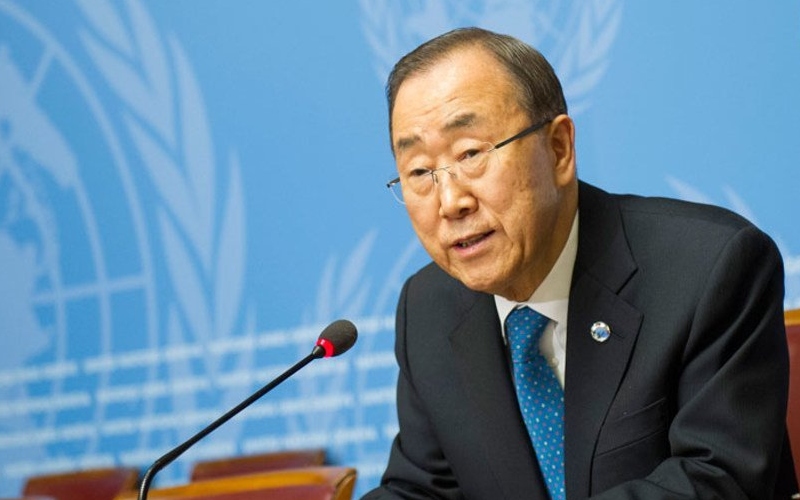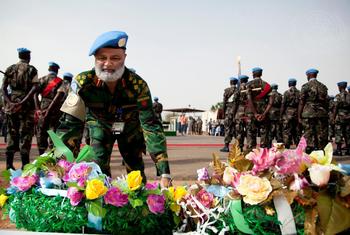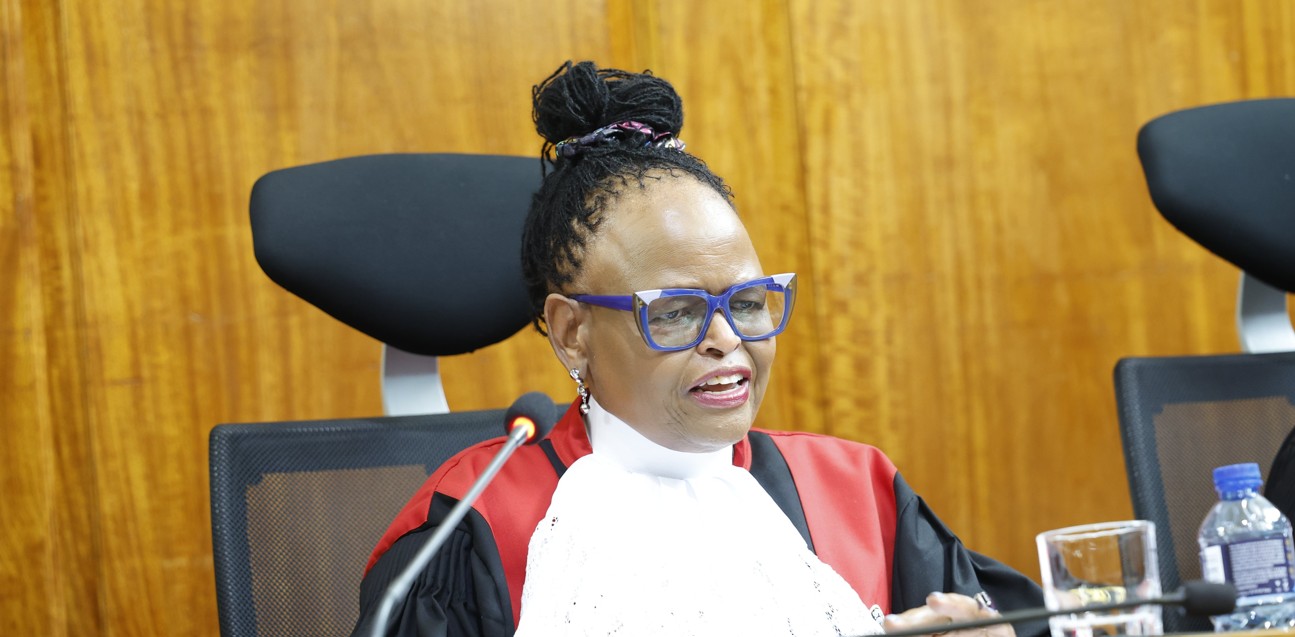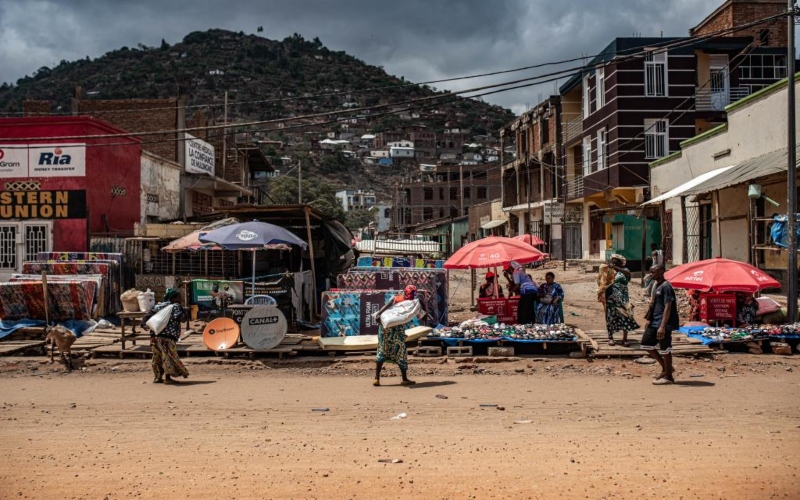Menstrual Hygiene Day: Girls from Mukuru, other slums to get new sanitary facilities
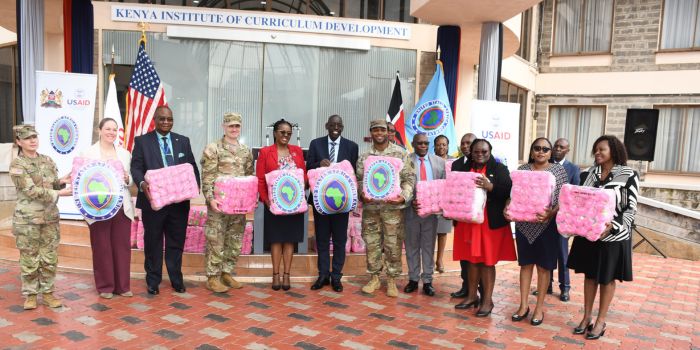
Mukuru Kwa Njenga Primary School in the Mukuru slum is one of the beneficiaries of the project announced by Education Principal Secretary Belio Kipsang' on Tuesday at an event marking Menstrual Hygiene Day.
The government, through the Education and Gender ministries, is planning to build new sanitary facilities in slums in Nairobi and other counties to address the menstrual health challenges of girls in informal settlements
Mukuru Kwa Njenga Primary School in the Mukuru slum is one of the beneficiaries of the project announced by Education Principal Secretary Belio Kipsang' on Tuesday at an event marking Menstrual Hygiene Day.
More To Read
- High-rise living in Nairobi’s Pipeline estate is stressful: How men and women cope
- Nairobi informal areas get sanitation boost through new simplified sewer system
- Kenya’s urban slum schools: Why access doesn’t guarantee better learning outcomes
- Nairobi MCAs urge Sakaja, Ruto to prioritise slum development amid funding delays
- Senator Sifuna demands probe into Kenya Power for billing unconnected Nairobi residents
- Forgotten hygiene: Handwashing struggles in Nairobi slums as Covid protocols fade
Speaking at the Kenya Institute of Curriculum Development, Kipsang' led the Education ministry in receiving sanitary towels donated to girls in schools located in slums and Arid and Semi-Arid Lands (ASALs), from the United States Agency for International Development (USAID).
"The programme has been significant in keeping girls in school, as it has also contributed to the improvement of learning," he noted while receiving 85,000 sanitary towels alongside his Gender counterpart, Anne Wang'ombe.
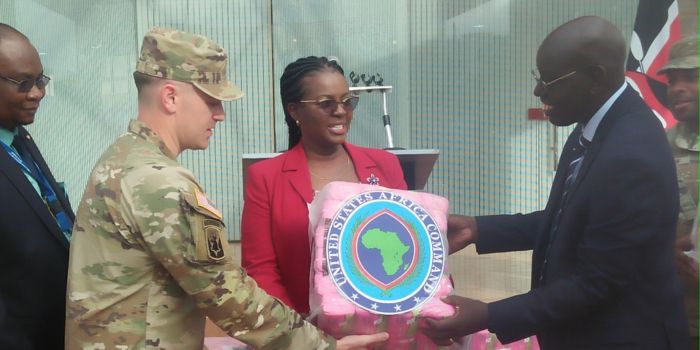 Education PS Belio Kipsang’ and his Gender counterpart Anne Wang’ombe receive sanitary towels from Major Halley Nicholas of the US Africa Command at the KICD in Nairobi on May 28, 2024, the Menstrual Hygiene Day. (Photo: Barack Oduor/EV)
Education PS Belio Kipsang’ and his Gender counterpart Anne Wang’ombe receive sanitary towels from Major Halley Nicholas of the US Africa Command at the KICD in Nairobi on May 28, 2024, the Menstrual Hygiene Day. (Photo: Barack Oduor/EV)
This donation was the latest by USAID, which has given a total of 175,000 sanitary towels in the previous months.
Wang'ombe noted that menstruation is a taboo topic for girls in some societies, prompting the government to create policies to improve menstrual health.
She regretted that even with free basic education, many girls miss out on education due to absenteeism related to reproductive health matters such as their monthly periods.
"We encourage the government and other stakeholders to support menstrual hygiene programmes in the country, as this ensures the elimination of stigma and shame among school-going girls," he said.
Data from the Education ministry indicates that girls who miss school for four days in 28 days (a month) lose 13 days, equivalent to two weeks, of learning in every school term. In an academic year of nine active months, a girl loses 39 learning days, equivalent to six weeks.
Girls between grades 6 and 8 of primary school (three years) lose 18 of the 108 weeks of learning, and within the four years of high school, they lose 156 learning days, equivalent to almost 24 of the 144 weeks of learning.
The sanitary towel programme was first launched in 2011 under the Education ministry, which has been procuring and distributing sanitary towels to girls from disadvantaged backgrounds. It is estimated that the Treasury has pumped Sh1.9 billion into the programme and that 11.2 million girls have benefited so far.
Before extending to the whole country, the initiative targeted girls in schools in 82 former districts, located in marginalised and slum areas. A school's location as per the National Poverty Index determined whether its pupils benefited.
The programme was transferred from the Education ministry to the Gender ministry in the 2017–2018 financial year, with a budget of Sh470 million.
The total number of beneficiaries thus far is 3,703,452 girls, who have received 14,813,810 sanitary towels costing Sh420.62 million.
The State Department for Gender is responsible for the projects' logistics, monitoring, and evaluation.
Top Stories Today


